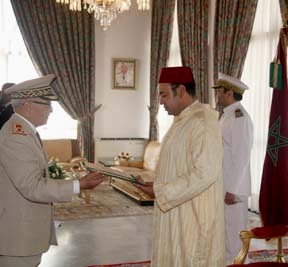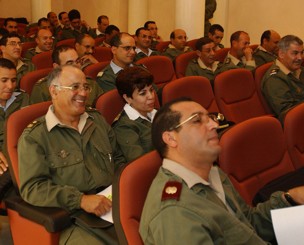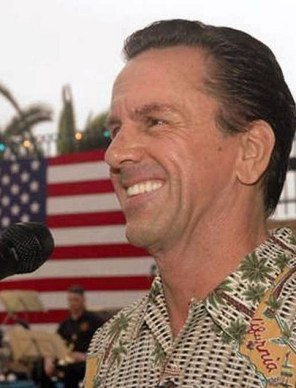|
Morocco Politics | Society Little US trust in Moroccan army
The US assessment of Morocco's military forces was made by US Ambassador in Rabat, Thomas Riley, in August 2008. The cable to Washington was leaked this night by whistleblower WikiLeaks - a media that itself was attacked this night and had to change its web address from wikileaks.org to wikileaks.ch.
The Moroccan military was plagued by corruption "at the highest levels," according to the Ambassador. "This may partly reflect a grand bargain struck by King Hassan II following at least two nearly successful coups in the 1970's: remain loyal, and you can profit," he reports. General Abdelaziz Bennani, commander of the Moroccan troops in occupied Western Sahara, is especially highlighted in the US embassy cable. "Credible reports" indicated that Gen Benanni was using his position "to skim money from military contracts and influence business decisions." Ambassador Riley also found credible rumours "that he owns large parts of the fisheries in Western Sahara." General Benanni, "like many senior military officers, has a lavish family home that was likely built with money gleaned from bribes," according to the Ambassador. Corruption was equally widespread in the gendarmerie, another armed unit directly under the King's control. Ambassador Riley reports that "low ranking gendarmerie assigned to highway patrols are expected to pay approximately 4,000 dirhams (US$ 540) to their immediate supervisors with extralegal earnings from motorists, above which they can keep for themselves, according to one credible anecdote." Finally, there were even credible reports of "students at Morocco's military academy paying money to increase their class standings in order to obtain positions in lucrative military postings." Ambassador Riley in general sees the "low levels of education in the ranks" as a problem for US-Moroccan cooperation. A final major concern of the US embassy was the large resources spent on Morocco's occupation of Western Sahara. Between 50 and 70 percent of the military's total strength, or over 100,000 troops, was deployed in Western Sahara at any one time, according to Ambassador Riley. The force in Wes
Interestingly, "Morocco does not consider the Polisario ... to be a conventional military threat. However, the Royal Armed Forces remains vigilant in guarding against a renewed Polisario insurgency effort," according to the US embassy assessment. Morocco had "effectively eliminated the Polisario's ability to launch hit and run raids." Morocco's blown-up armed forces, placing large strains on the national budget, did not face a real threat from Polisario or its Algerian allies, the US Ambassador found. The troops however were useful in another way to win the Western Sahara conflict, Ambassador Riley found. "Motivated to win over other countries to its claims to Western Sahara, Morocco is active in UN, engages in peacekeeping activities, and occasionally sends troops to assist friendly countries," he wrote. Examples were drought and famine relief operations in Senegal and Niger. Since the August 2008 cable, Morocco has invested even more in its armed forces. afrol News earlier has reported that Morocco in 2009 was to double its defence budget in real terms, reaching 16 percent of total state expenditures. The Moroccan press had calculated Morocco's defence budget for 2009 to reach Dirham 34 billion (US$ 3.5 billion); or three times the 2005 budget. Also ties with the US have continued deepening, although Washington is also improving its relations with Morocco's arch-rival Algeria. To the joy of the US embassy, Morocco has shifted even more of its weapons purchases from traditional ally France to the US. Ambassador Riley was replaced in January 2009 and now works in the private sector. By staff writers © afrol News - Create an e-mail alert for Morocco news - Create an e-mail alert for Politics news - Create an e-mail alert for Society news
On the Afrol News front page now
|
front page
| news
| countries
| archive
| currencies
| news alerts login
| about afrol News
| contact
| advertise
| español
©
afrol News.
Reproducing or buying afrol News' articles.
You can contact us at mail@afrol.com










